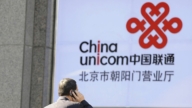【新唐人2012年3月24日讯】中国首部禁演电影《武训传》日前开始发行正版 DVD。《武训传》在上世纪50年代公映时大受欢迎,后来因遭毛泽东点名批评而掀起政治风波,导演和演员被批,影片被禁演。因为复杂的历史背景,DVD发行商在封面标明:“供研究所用”。
《武训传》是由当时的留美知名导演孙瑜自编自导,讲的是“武训行乞办义学”的故事。3月15号网上传出《武训传》解禁并发行、销售正版DVD的消息。
原《陕西电视台》记者马晓明指出,这部电影早就应该被解禁了。
马晓明:“作为一种文艺形式,一种人民的传播形式,应该允许各种各样的题材,各种各样的观点来表达和伸张,致于这个题材宣扬的是还是非,在我们全社会有多少作用,它的价值观有多少,应该由社会的检验来作出评判,由全社会看了这部电影的观众来评判。”
《武训传》DVD发行以来,热销数百套,中国最大网路综合商城“亚马逊”19号已断货。
而电影讲述的是,男主角武训7岁丧父,随母行乞。武训20岁因丧母向乡绅要求支薪不成,反被痛殴。武训有感吃亏受欺负是因为没有文化,此后30年以行乞、卖艺等方式筹集善款兴建学校,让穷人家孩子读书。
1951年《武训传》首次公映就获得巨大反响,上海各大影院连续播放几个月不下档,但当年的5月20号,中共喉舌《人民日报》发表了毛泽东修改审定的《应当重视电影〈武训传〉的讨论》,指称《武训传》背后用意,是在引出即将大规模进行的“知识份子思想改造”。
7月23号,《人民日报》公布江青派出调查组到山东访问后写出的《武训历史调查记》,指称武训是一个“大流氓、大债主和大地主”,对于《武训传》的讨论演变成了全国性的批判。1966年大陆开始了“文化大革命”,“红卫兵”掘开武训的坟墓,焚尸街头。
大陆作家铁流表示,武训行乞筹款建学校与毛泽东宣扬的阶级斗争格格不入,被当作刘少奇一样,进行批斗。
大陆作家铁流:“文化大革命就说刘少奇是投降主义,把那个武训比作刘少奇,要打倒刘少奇,说是修正主义。所以,那个武训向地方乞钱办学校,就是不要阶级斗争,不要阶级立场,这个道理。”
马晓明指出,毛泽东极力宣扬斗争哲学,凡是他认为非阶级斗争理论观点的人,都会对他进行残酷打压,而电影业是“文革”时期遭受残酷迫害的领域之一。
马晓明:“那个时候许多的电影只要毛泽东发表一个批评的言论,特别是江青进行一下点评,那马上就决定你的生死,不但决定这部影片的生死,包括参与这部影片摄制人员都会招来横祸,230-251许多演员,导演,编剧,甚至审查过的官员都受到了非常惨无人道的对待,有很多都已经被逼死了,被打死了。”
1980年开始,民间传出为武训平反的声音﹔但直到1985年,《人民日报》才提出,对《武训传》的批判非常片面、极端和粗暴﹔1986年国务院办公厅下发了《关于为武训恢复名誉问题的批复》,算是给武训“平了反”。不过电影仍一直被禁播。
马晓明:“《武训传》的这个过程,它被禁演,遭批判的过程,它是这个中共文化法西斯主义的一种表现,到现在为止这种严格的文化和思想控制仍然没有改变。”
马晓明还指出,中共现在仍然有非常严格的电影审查制度,有些仅仅是说了实话,反映了真实情况的影片,都会遭到禁演。
采访编辑/李韵 后制/朱娣
The Life of Wu Xun Uncensored, Official DVD Incites Reflection
China’s first banned movie The Life of Wu Xun,
was recently released on DVD.
The Life of Wu Xun was widely popular during the 1950s;
later, due to criticism from Mao Zedong which caused a political storm,
the director and actors were criticized and
the movie was banned.
Due to this complex historical background, the cover of the
DVD says “For Research Purposes Only.”
“Life of Wu Xun” was written and directed by director Sun Yu
who was in the U.S at the time and
tells the story of Wu Xun who spent years collecting money
as a beggar to eventually found a free school for children.
On March 15, it was rumored on the internet that
the ban on “Life of Wu Xun” had been lifted.
Former Shanxi TV reporter Ma Xiaoming pointed out that,
the ban on this movie should have been lifted long ago.
Ma Xiaoming tells us, “As an art form, a way of communication,
various themes should be allowed, to be expressed in a variety of ways,
as to whether the theme is good or bad,
it’s possible effect on society, the values it may show,
society at large should be left to decide on these issues,
a work should be judged by it’s audiences.”
Since the release of the “Life of Wu Xun” DVD,
hundreds of copies have been sold.
Amazon China was already out of stock by March 19th.
The movie tells the story of Wu Xun, who lost his father at
the age of 7 and became a beggar with his mother.
After his mother died when he was 20 years old,
he went to the gentry seeking money for the funeral, but was badly beaten.
Wu Xun thought his suffering was due to his own lack of
education, so he spent 30 years collecting money as a beggar,
street entertainer and by other means to found a school,
so that kids from poor families would be able to go to school.
When the DVD “Life of Wu Xun” was first released in 1951,
all major theaters in Shanghai played it non-stop for months.
However, on May 20, 1951, the People’s Daily published a
discussion by Mao Zedong on the movie, accusing the movie of trying to “reform the minds of intellectuals.”
On June 23, the People’s Daily reported that
after Jiangqing sent an investigation team to Shangdong,
it was claimed that Wu Xun was a “thug, a big creditor,
and a big landowner,” which aroused nationwide criticism of the movie.
In 1966, the Cultural Revolution started, the Red Guards dug
up the grave of Wu Xun and burned his corpse on the street.
Mainland author Tie Liu expressed that,
Wu Xun’s begging to build a school with the proceeds
is completely the opposite of the class struggle ideology
that Mao was promoting,
so the work was denounced just as Liu Shaoqi had been.
Tie Liu tells us that, “The cultural revolution had accused
Liu Shaoqi of being a “capitulationist”,
so Wu Xun was compared with Liu Shaoqi, to bring down
Liu Shaoqi, the criticism was of his ideology.
So, Wu Xun‘s begging to start a school was seen
as not having a class struggle,
mentality as not having a class viewpoint,
this was the prevailing mentality in those troubled times.
Ma Xiaoming pointed out that, Mao Zedong championed the
struggle ideology, anyone that he viewed as not having a struggle ideology was brutally persecuted.
The movie industry was the most severely prosecuted
sector of society during the Cultural Revolution.
Ma Xiaoming says that, “At that time, whenever Mao Zedong made a critical comment,
especially after the Jiang Qing review had been conducted,
that immediately decided your fate, not only for the movie,
but for the lives of the production staff.
Many actors, directors, and writers were tortured during
interrogation, and many were beaten to death.”
Since the 1980s, many in China have wanted
to clear the name of Wu Xun.
It was not until 1985 that the People’s Daily expressed the
view that, the criticisms of Life of Wu Xun had been very one-sided, extreme and brutal.
In 1986, the State Council published an approval to clear
the name of Wu Yun, but the movie remained banned.
Mao Xiaming, “The process of ‘Life of Wu Xun’,
it’s being banned and criticized;
this is all a manifestation of Chinese Communist Fascism.
This type of cultural and ideological control still has not changed.”
Ma Xiaoming has pointed out that, the Chinese regime still
has a very strict movie review process.
Some films have been banned for simply telling the truth,
and for reflecting reality.




























